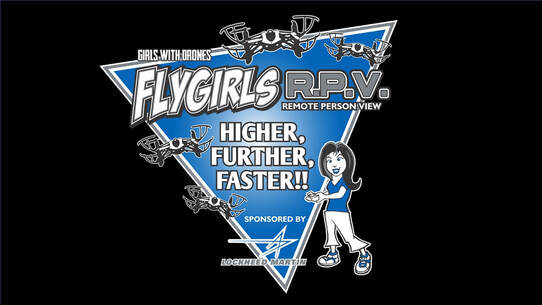Cobb County Georgia, Working with “Fly Girls” Company to Get Female Students Interested in Drones

According to research compiled by the United States Bureau of Labor Statistics, there were a total of 162,795 different occupations in 2019. Of all the occupations in the United States, 9,955 of them were in STEM related fields with a median income of $86,980 a year. The research also predicted that over the next decade, STEM related occupations will be the largest growing field of employment with an 8% increase. STEM occupations cover any fields in Science, Technology, Engineering, and Mathematics, and seeing how there is such a high demand for such professionals, it comes as no surprise that early education programs are heavily focused on STEM learning.
However, there is a drastic gender gap in STEM fields with women representing only around 30% of employment rates. Studies have shown that by the time a female reaches the 4th grade, she has unknowingly decided whether or not she will enter a STEM related field in the future. For this reason, many education programs strive to encourage STEM in young females. Ask almost any teacher and they will tell you the key to getting students committed to a future in STEM is finding a way to engage them in the educational process in a memorable way. That is exactly what a team of educators from Cobb County, Georgia set out to do in 2019 with the introduction of “Fly Girls”, an educational drone program for females.
Cobb County is the 3rd most populous county in Georgia with the state’s second largest public school system. There are 65 public elementary schools within the county. When Dr. Sally Creel’s principal suggested looking into a district wide drone program, she had never once worked with drones. As the District Administrator for STEM and Innovation, she was intrigued by the possibilities and began reaching out for support. That support came from one of the largest aerospace companies in the world, Lockheed Martin. Employing more than 54,000 scientific based positions, Lockheed Martin has a keen interest in supporting STEM education with generous outreach funding.
With funding from Lockheed Martin, Dr. Creel got a collection of Parrot Mambo mini drones to begin teaching females how drones can be used in everyday situations. “We wanted to give young women the opportunity to see that drones are something they can do,” Dr. Creel said. “At the same time, we’re working on college and career readiness, helping them understand what they can do with this in the future.” During Fly Girl’s first year, students got to manipulate and learn with the drones. In the spring of 2019, Fly Girls had the opportunity to attend a state drone show and competition at Kennesaw High School. At the drone show, Fly Girl students interacted with industry professionals and 100 other female drone pilots.
But as 2020 rolled around, Dr. Creel had to find a new way to keep her girls engaged in drones and STEM while schools across the country transitioned to remote learning. With input from teachers throughout Cobb County, 50 females were invited to join Fly Girl’s RPV (Remote Player View) COVID-19 Experience. The RPV program pairs each participant with a drone and the materials needed to participate in a series of challenges. The materials include instruction on how to complete the challenges as well as opportunities to learn from industry professionals. “We don’t want to lose the momentum,” said Dr. Creel. “So we added cameras to the drones and had the CEO of Aerial Solutions talk about how her company took photos of the Mercedes-Benz stadium as it was being built to show its progress. In December, we paired with an insurance adjuster and gave them the rooftop challenge. Our next one will be with an environmental engineer who uses drones to study wetland areas, and we’ll send them out to capture footage of a wetland in their areas.”
With these missions, the participants in Fly Girls are learning valuable skills that will set them up for the future. The drones keep them engaged, teaching them in ways that strengthen lessons learned in a classroom, virtual or physical. Without even realizing it, these girls now have the resources to earn an income within the field of drone technology, one of the fastest growing sectors of STEM based opportunities. “Our goal is to get to them early and show STEM is something they can have fun doing and have a career in, if they decide to,” Dr. Creel said. One thing that was made abundantly clear during the COVID-19 pandemic is that the world is increasingly dependent on drones. With this in mind, Dr. Creel is now working with school districts beyond her county and state to encourage implementing a Fly Girl drone program.
|